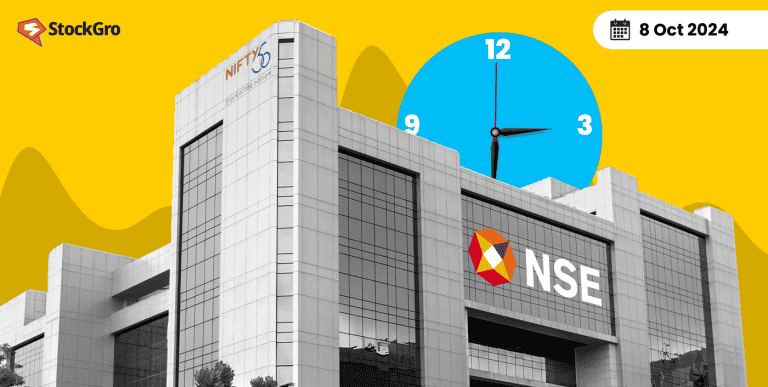
When we consider trading in the stock market, most of us picture individual investors or brokers purchasing and selling on behalf of their customers. But did you know companies themselves could enter the game trading with their capital? It is known as proprietary trading, also referred to as prop trading, and it is a potent influence.
Prop trading is unlike conventional trading, in which financial institutions trade on behalf of clients, in that it uses its capital to trade financial instruments. This strategy lets companies keep all the returns on their investments, thus possibly generating huge profits.
This article will dive into what proprietary trading truly is and why firms engage in it.
What is proprietary trading?
Proprietary trading is the practice whereby financial institutions such as banks or hedge funds use their capital to participate in trading activities to make a profit. Unlike conventional trading, in which institutions handle transactions on behalf of customers, proprietary trading is the firm speculating on financial instruments for its advantage.
Using techniques like market-making, statistical arbitrage, and event-driven trading, traders hope to profit from short-term prospects and market inefficiencies. However, proprietary trading comes with regulatory concerns, market volatility and liquidity risks.
How does proprietary trading work?
Proprietary trading is the process by which financial institutions trade financial instruments using their capital, thus enabling them to keep all earnings from these investments. Usually separated from client-oriented desks, proprietary trading desks operate independently and help the institution’s revenues guarantee client interests are preserved.
Particularly concerning substantial or illiquid trades, these desks can also function as market makers. Under such circumstances, they ensure market liquidity by assuming the opposite side of the client’s trade, thus facilitating transactions.
Why do firms engage in proprietary trading?
- Improving financial performance: By trading across several asset classes using their capital, proprietary trading lets companies increase profitability. Employing effective trades, companies can greatly improve their financial performance since they keep all their earnings.
- Risk minimisation: Companies also employ proprietary trading to offset market-making and underwriting risks from other corporate operations. Strategic diversification of their trades helps them to balance possible losses and better control market volatility.
- Increasing market liquidity: Active trading helps companies contribute to market liquidity, thus guaranteeing better transactions for all those engaged. More stable and efficient financial markets follow from more liquidity.
- Gaining market insights: Proprietary trading keeps companies sensitive to dynamics and changes in the market. Employing this practical participation, they can acquire important insights, thus enhancing decision-making and strengthening risk management techniques to safeguard capital in unstable markets.
You may also like: Insights into Liquidity Trap and its Impact
Advantages and risks of proprietary trading
| Benefits of proprietary trading | Drawbacks of proprietary trading |
| Data-driven decisions: Employing a well-defined approach, emotional trading is minimised, and traders make more logical, calculated decisions. | Lack of regulation: Some companies might not be under oversight, thus raising hazards including unfair profit-sharing, unstated fees, or fraud. |
| Credibility: Having a well-organised approach shows your trading experience and helps build your credibility in interviews or trial periods. | Barriers to entry: Usually, you have to pay a deposit and continuous fees to become a prop trader. If beginners aren’t making profits, they might not be able to cover these costs and will lose money. |
| Proven track record: Well-documented plans with past success lower risk by increasing the possibility of profitable trades. | Restricted freedom: Companies may restrict trade types, durations, or amounts, thus limiting traders from optimising profitability. |
In reality, many traders invest a substantial amount of money, hoping for high returns. But there’s a risk of losing the entire investment.
This reality emphasises the great need to know the benefits and disadvantages of proprietary trading since traders negotiate the challenging terrain of risk and reward in their quest for profitability.
Proprietary trading vs. hedge funds
| Proprietary trading | Hedge funds | |
| Objective | Generate profit for the financial institution using its capital. | Generate profits for investors (limited partners) through active portfolio management. |
| Investor base | Makes use of company money; does not depend on outside investors. | Mostly institutional investors, high-net-worth individuals (HNIs), and occasionally regular consumers. |
| Risk management | Applies advanced risk management strategies including hedging strategies. | Uses long/short positions and derivatives among other hedging techniques to reduce risks. |
| Assets | Emphasise trading actions on several financial instruments. | Invest freely in many asset classes including stocks, bonds, derivatives, and real estate. |
You may also like: Hedge funds: How to take advantage of market volatility
Regulations governing proprietary trading
Reacting to the financial crisis of 2008, the Volcker Rule was adopted in 2010 under the Dodd-Frank Wall Street Reform and Consumer Protection Act in the United States. This control aims to prevent major financial institutions especially those supported by governments from acting in too reckless a manner.
It limits its proprietary trading activities by prohibiting banks from trading financial instruments for their benefit rather than on behalf of customers. The rule was supposed to restrict conflicts of interest and reduce the possibility of systematic risks linked with speculative trading, thus strengthening the stability of the financial system.
Regulating private trading in India depends much on the Securities and Exchange Board of India (SEBI). SEBI has created guidelines and policies for financial institutions and investment companies engaged in proprietary trading on behaviour.
These rules seek to guarantee fair trading practices inside the Indian financial markets, investor protection, and openness. To reduce risks and protect market integrity, SEBI closely watches proprietary trading operations.
Further reading: High-Frequency Trading (HFT) – yay or nay?
Bottomline
Proprietary trading is the use of money by financial institutions for profit-making. This helps them earn more and also keeps the market active. Knowing about proprietary trading is important because it affects how markets work and behave.
FAQs
Is prop trading legal in India?
Yes, proprietary trading is allowed in India legally. It means using a company’s money to trade financial instruments to make money. Still, it is under the control of the Securities and Exchange Board of India (SEBI), which guarantees companies follow particular policies and uphold transparency. Traders have to follow these rules to run legally and stay free from fines.
Is prop trading risky?
Yes, proprietary trading carries risks. It entails trading financial instruments using the capital of a company, thus generating either major profits or losses. The great leverage and market volatility can increase hazards. To minimise possible losses, traders have to have solid risk control plans and thorough awareness of the markets. For experienced traders, it can be quite profitable even with the hazards.
How do I start prop trading?
To start proprietary trading, follow these steps:
- Learn trading: Gain knowledge through courses and practice.
- Choose a prop firm: Research firms and their requirements.
- Pass evaluation: Complete the firm’s trading challenge.
- Get funded: Trade with the firm’s capital.
- Develop strategies: Create and refine your trading strategies.
- Manage risk: Implement strong risk management practices.
What if a prop trader loses money?
Usually, the company absorbs the loss rather than the prop trader if one loses money. Still, regular losses could cause the trader’s contract to be terminated. Many times, prop companies have rigorous risk control policies to reduce losses. Traders have to follow these rules if they are to keep trading. Maintaining their positions depends on traders properly controlling risk and keeping profitability.
Are banks allowed to prop trade?
Unlike their equivalents in the United States, banks in India can participate in proprietary trading. To guarantee appropriate risk management, banks in India control prop trading, though. Guidelines and systems in place to manage bank proprietary trading activities comprise those of the Reserve Bank of India (RBI) and the Securities and Exchange Board of India (SEBI). This guarantees they follow risk management techniques and keep enough capital reserves.

